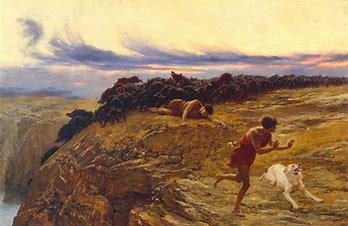There has always been a divide between the concrete vibrant faith in Christ that is living and active and trusts in God because of Christ and his sacrifice even in trial, and the more academic study of Christianity that many people see as faith. For many Christianity is morality. It is a set of principles and ideas about love and brotherhood. For Lutheran’s faith should be the trust in the one who is the way and the truth and the life because without him there is no way, truth or life. It is the loss of life in self and a life hidden with Christ in God, sometimes hidden for the believer too. It is a life of mercy and self giving to the neighbor because of the belief that God has given us all we need for life in this world and life in the world to come in Christ.
Back in the day G.K. Chesterton, mentioned before, was a fierce and funny defender of Christianity. He noticed an interesting thing going on and that was people drawn to the morality of Christianity; love for neighbor, care for the poor etc;, but put off by the mystical things like miracles and demons and exorcisms. The world was on the cusp of a new batch of German philosophers who would be on the front line assaults on Christian doctrine and the foundations of spirituality founded in Christ. But there was also a strange brew of orthodoxy and a kind of new age weirdness such as environmentalism and animal rights, concepts that would portend things to come.
An interesting public debate was going on between an agnostic T.H. Huxley who was about scientific skepticism, and William Gladstone the British Prime Minister who believed in scriptural orthodoxy including the 6 day creation. For some reason the public debate centered on the story of Jesus and the Gaderene demoniac found in Mark 5. Huxley was at the point where he was willing to accept Christian moral value but he wanted to do away with the incredible stories of supernatural acts like sending a legion of devils into a herd of pigs and having them drowned in a lake. Gladstone of course stuck to the Biblical account as being factual and a moral story of humans who can live with the demonic but are terrified of the one whom the demons fear.. According to Chesterton, Huxley felt that the Christian ethical ideal was as “secure as the stars” but the mystical and diabolical supernatural world view was “dross” that could be removed. Huxley quoted the passage of MIcah 6, ” He has told you, O man, what is good; And what does the LORD require of you But to do justice, to love kindness, And to walk humbly with your God?”. That ideal said Huxley, was worthy of being followed but the dross of supernaturalism messed it up. He wondered if it were possible for anyone to suggest that “justice was worthless or that mercy was unlovable, or whether anything could diminish the distance between ourselves and the ideals that we cherish”. The answer came as a shock to both Huxley and Gladstone in that there were many who found justice worthless and mercy unlovable. Someone even suggested that Jesus should be condemned, “not for destroying the swine, but for delivering the sick.”
All of this, as I have said, was on the cusp of a world view change (which is a form of magic) in which Christ is not the center of salvation. God is not the creator. There is no way, or truth or life apart from human beings who can manage their own destiny quite well. In fact they can manage with the elemental spirits of the universe that Paul warns against. There is really in this system no sin accept the sin of not being true to yourself. Chesterton makes this rather devastating statement; “There has been a revolt against Christian morality, and where there has not been a return of Christian mysticism, it has been a return of the mysticism without the Christianity. Mysticism itself has returned, with all its moons and twilights, its talismans and spells. Mysticism itself has returned, and brought with it seven devils worse than itself.”**
**”The G.K. Chesterton Collection”, Catholic Way Publishing 20114


